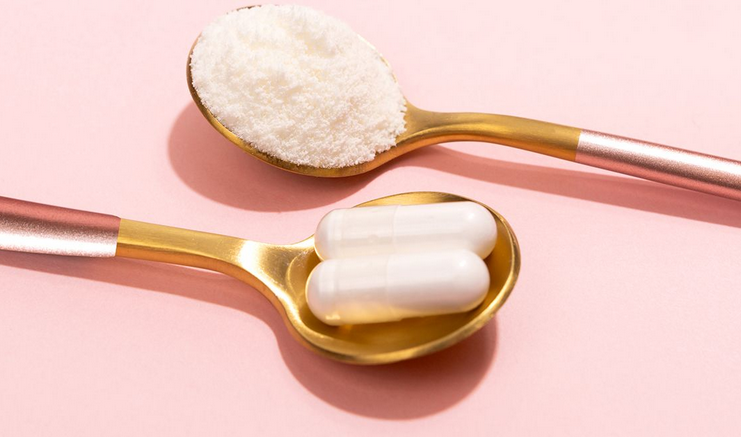Back in April, we discussed how I choose the collagen I use. Here is what I shared with you back in April, in case you missed it.
If you are like a lot of other athletes over 40, I will do anything to help overcome those nagging injuries that might not stop us from training but hold us back from pushing our hardest.
This is the promise of collagen.
The problem, most collagen on the market is garbage. While it improves the quality of your hair and nails, your Whole Foods collagen products do next to nothing for you as an athlete.
As you will read, this is a topic that gets me fired up, especially when I see people buying the wrong collagen at the store.
Don’t get me wrong. I’m not saying collagen doesn’t work for athletes.
There are lots of studies that show the efficacy of taking collagen for athletes. Specifically improved soft-tissue repair (tendons & ligaments) and stimulated new cartilage growth.
I’m not debating these studies. They are numerous, scientifically rigorous, and show marked improvement in athletes.
I usually put a scoop of collagen in my coffee or recovery shake.
But here is the catch. The most compelling studies showing improvement in athletes almost all use a particularly high-grade and patented form of collagen. That is NOT what is in the collagen you get at the grocery store or even on Amazon.com
I won’t get too deep into the science as there are lots of different studies in this space, but the issue comes down to the length of the collagen protein strands. The grocery store products are just a random assortment of collagen of different sizes.
But as an athlete, studies seem to indicate that if the protein strands are a precise length they are better able to enter soft tissue and promote cartilage repair.
In our experience, there are two patented forms of collagens you want as an athlete, and they are called Fortigel® and Tendoactive®. They help repair soft tissue and help improve your joints later by stimulating collagen growth.
There are a few products that have Fortigel, such as Momentous Collagen, which is NSF Certified for Sport. The only product that has both Fortigel® and Tendoactive® is the SwissRX Collagen and the one I’ve been using.
The SwissRX Collagen also contains a third ingredient called Mobilee®, a patented form of pure Hylauronic Acid to further help joint mobility.
So if you have tendonitis, muscle tears, or achy joints (especially knees), try a month on SwissRX Collagen and see if it helps.
How to take it
You can use SwissRX Collagen as a scoop in your coffee, recovery shake, or just in a glass of water. I’m religious about taking one scoop per day.
What does it taste like?
It is odorless and tasteless. You won’t notice in your coffee or recovery shake. If you put it in a glass of water, note that it is a slightly strange mouthfeel that I don’t love.
When to take it?
I don’t worry too much about when I take it, as long as I take one scoop daily. The studies show that it is very well absorbed in the gut.
If you are looking for maximum absorption, studies show to take it 45 minutes before exercise. This timing will help the collagen bed absorbed by your soft tissue, and some suggest this might even have a protective effect on injuries.
What about Vitamin C?
You have probably heard that you should take Vitamin C with Collagen, and that is true. It helps with absorption. SwissRX Collagen already has 100mg of Vitamin C, so you don’t need to take extra.
Does it help with Inflammation / Recovery?
Yes. This is one of the benefits that is seldom mentioned. Collagen can also be a potent anti-inflammatory and one of the reasons I like adding it to a recovery shake. Also, this is why I take it when I’m injury free and my joints feel great.
Try SwissRX Collagen out for a month, and see how it works for you.
DRG
